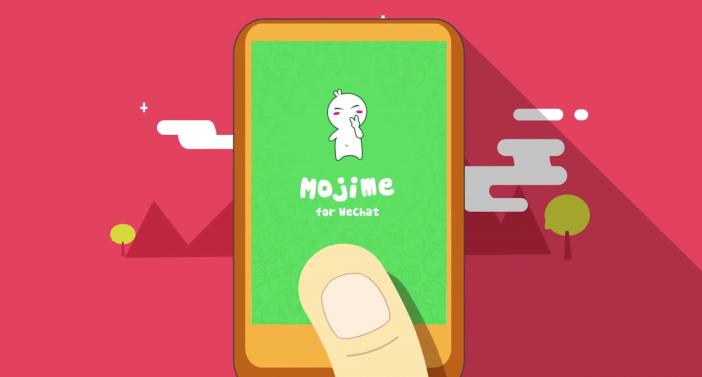Here are a few things I’ve learned about competitors to the four startups I’ve worked for or started (Odeo, Wesabe, CrowdVine, Lift).
- Competitors don’t matter.
- If you’re going to get technical about it, worrying or planning for competitors doesn’t matter.
- Competitors will find a way to put themselves out of business no matter what you do.
- You’re at risk of putting yourself out of business also, so mind your own ship.
- Competitors aren’t very good. Think about it, most startups are run by complete amateurs (remember the first company you started?), tackling a space they don’t understand, with extreme pressure, and limited resources. This is not a recipe for awesomness.
- Take your eye off competitors for a moment and you’ll notice that your own company doesn’t have any customers. #morepressingproblems
- Go back to examining your competitors and realize that if you were to knock them over the head and steal every single one of their customers that your startup would still be screwed.
- When competitors kick you in the teeth it comes with such strength and suddenness that there was nothing for you to do anyway. Some examples to come.
- Beat down #1. Odeo’s podcasting directory didn’t matter after Apple added podcasting to iTunes. Nothing to do beforehand other than not start the company. Nothing to do afterward but try something else. We tried audio comments, an online recording studio, audio messaging, short video messaging, audio status updates, an online radio player, and 140 character status updates.
- Beat down #2. Mint sprinted by Wesabe with a clearer design, better name, and aggressive marketing. This was obvious from the second they launched. Kudos. The only thing to do beforehand was to be better (which, duh, we tried). Not much to do after except hope they take themselves off the board (Which they pretty much did when they got acquired and most of the team quit.)
- Beat down #3. I just finished my beta version of CrowdVine as a “create your own social network service” when Ning refocused on just social networks and raised $100M. One day they looked completely unfocused, the next they looked unbeatable. Four years later they’d peaked and shrunk significantly.
- Two of the beat down stories involve competitors looking less strong over time. This “put yourself out of business” impulse is strong. I can’t stress this enough. If you insist on competing then use the “don’t go out of business” tactic. This tactic has a 99% effectiveness rating.
- In the Odeo case, isn’t everyone happy we got chased off of podcast directories and did Twitter instead?
- CrowdVine had seven direct competitors launch after we pivoted to social networks for conferences. Six of them put themselves out of business. For example they raised VC money and then pivoted after finding out that the market was too tiny, they failed to land any paying customers (this was B2B software), the founders got bored and tried something else, etc.
- The seventh CrowdVine competitor, the one that didn’t put themselves out of business, validated the market and made it easier to land new customers.
- A lot of weaker competitors will focus on you (and maybe even seem like they are copying you). Let them. Better to have second rate copies rather than for one to discover there is a fundamentally better approach.
- If you’re thinking about competition because you’re one of the copycats, then you’re lame. You’re missing the point of entrepreneurship. There are so many fresh problems to solve.
- Some cometitors give you the creeps. They try to buddy up to you (it’s hard to find the respect to reciprocate when they’re copying your ideas). They publicly compare themselves to you even though they’re miniscule and you’re barely any bigger. They make outlandish claims before about being number one. They post links to their product in the comments whenever you get press. They behave weirdly toward you in person. Having the creeps is a distraction from your real problems: your product isn’t good enough and you don’t have enough customers.
- Competitors will have tiny wins. You wanted those wins. Seeing them win will make you feel bad about yourself. The best thing I ever did for myself was delete my vanity search for CrowdVine competitors. Again, you have real problems that you need to save your stress for.
- If a reporter asks you about a specific competitor the proper response is to pivot and respond to the product category. How does Twitter deal with Facebook? “Social networking is a huge category and we believe Twitter holds an important place.” See? You never even have to say the name of a competitor no matter how big.
- The better competitors are actually your peers and you will be friends with them someday because you have a shared passion.
- Competitors really only matter if your users are telling you that they matter. But this is just the same as any other case of your users telling you that you need a better product. So keep making a better product.
- This post might look like it’s about strategy, but it’s really about productivity. Stop thinking about things that don’t matter.
Hopefully this realization about the futility of worrying about competitors makes your startup experience as zen as mine is (which is to say more so, but still a long way to go).
Everything there is to know about startup competition – Click To Tweet
Read also: What should all first time entrepreneurs know before starting their very first business?
The post originally appeared on Medium.









